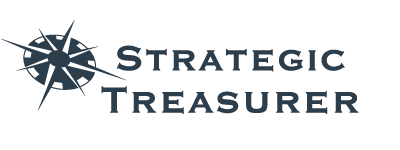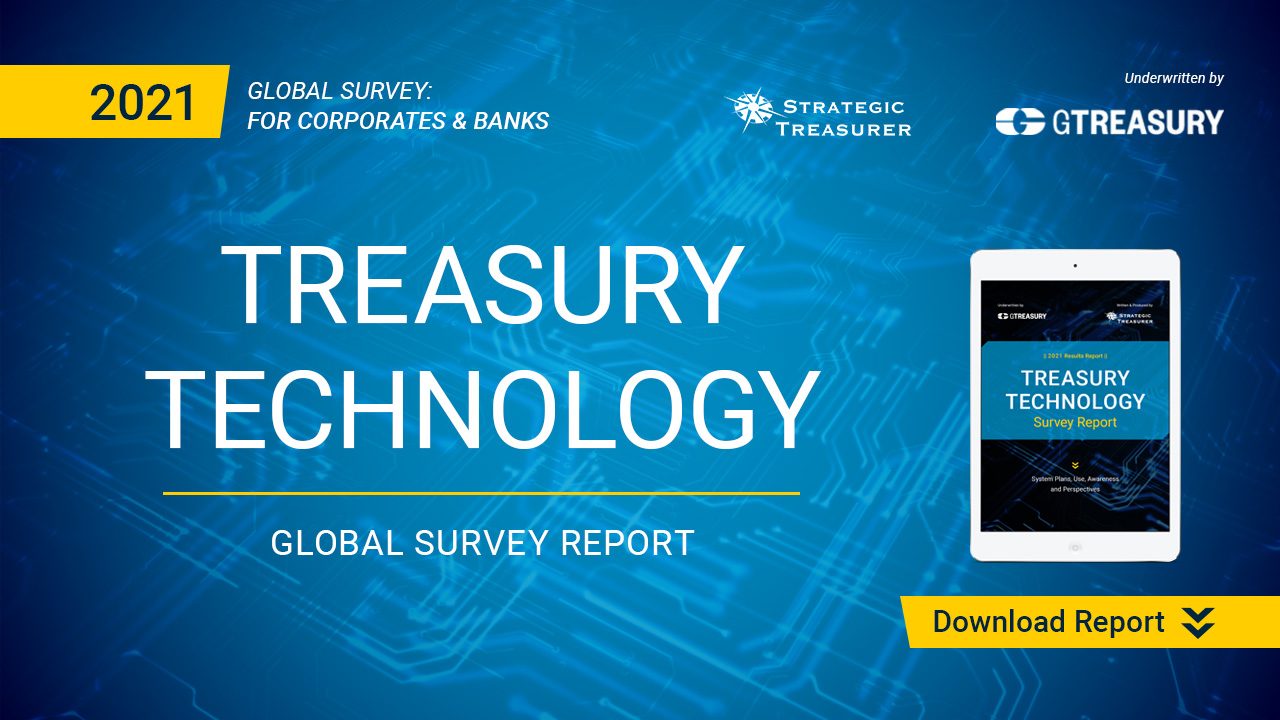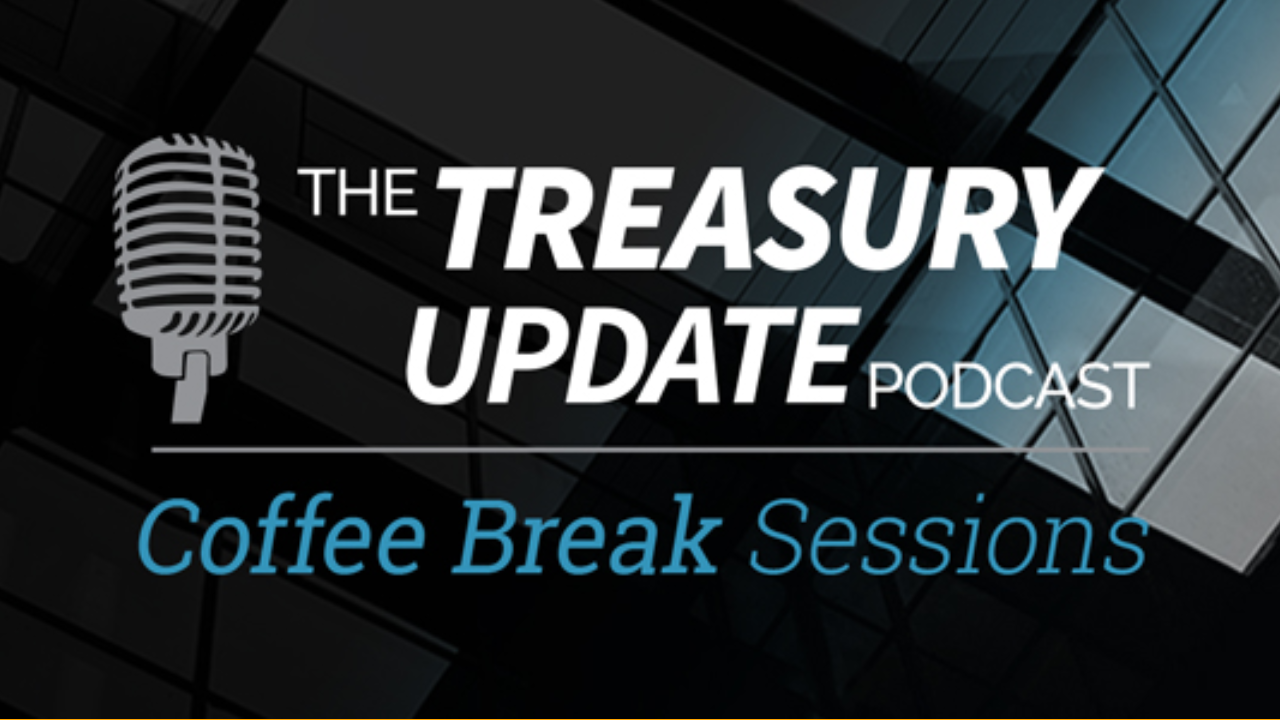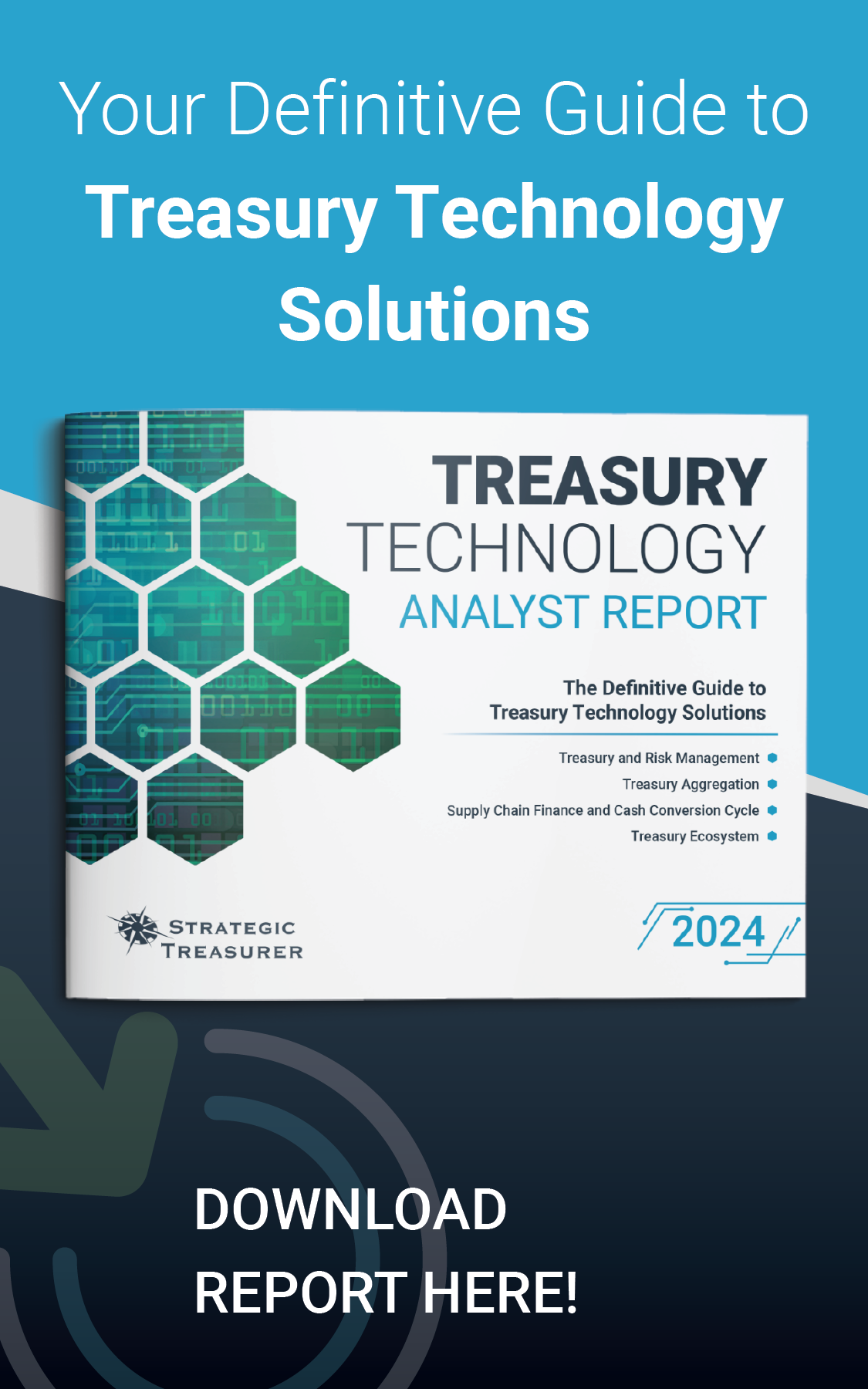
Session 59
Coffee Break Session:
What Is FedNow?
What is FedNow? Coffee Break Session Host Alexa Cook catches up with Strategic Treasurer’s Managing Partner, Craig Jeffery, to discuss FedNow. Their conversation covers what FedNow is and how it is impacting both treasury departments and companies. Listen in and learn a little bit about FedNow.
Host:
Alexa Cook, Strategic Treasurer


Speaker:
Craig Jeffery, Strategic Treasurer


Episode Transcription - (Coffee Break Session Series) - Episode 59 - What is Fednow
Alexa Cook 0:00
Hey guys, welcome to The Treasury Update Podcast Coffee Break session, the show where we cover foundational treasury topics and questions in about the same amount of time it takes you to drink your coffee. This is your host Alexa and I’m joined today with Craig Jeffery, Managing Partner of Strategic Treasurer. Welcome back, Craig.
Craig Jeffery 0:22
It’s good to be back here, Alexa, talking about payments–like it.
Alexa Cook 0:28
Yeah, so today we’re going to like you said jump into payment. We’re going to be talking about FedNow. So, Craig, what is FedNow?
Craig Jeffery 0:37
FedNow was one of the faster payment services that is being developed by the Federal Reserve Bank, so the US Central Bank is working on this so FedNow is almost immediate or near real time. Payments set up that they’re going to launch in 2023. So. following what many countries, central banks, and different payment services are doing with these real time, faster payments, same day tight payments. This is the Central Bank of the US’s answer to how do we move payments forward?
Alexa Cook 1:14
My next question was, is it available that you answer that saying that it would be launching in 2023? So really, I’m going to ask a question that’s not scripted. And that is, this is making me think of Zelle, or Venmo, Cash App, stuff like that. So, this is kind of like the Federal Reserve’s take on those sorts of payment mechanisms.
Craig Jeffery 1:34
Yeah, I Zelle and Venmo, yeah, they’re different payment mechanisms. Some are more geared towards person to person or business to person. So, think about it this way. It’s a way of settling payments. You can request payments; you can be a receive only participant. So, you can have payments come in but they don’t go out, but this is it’s not only faster, it’s also 24 by seven/365. So, there’s the availability to do this. Obviously, if you’re working with your bank, your bank has to support that. But to your question about some of these other payment examples, it can be what’s called account to account, which could be I’m sending it between accounts, I have another banks I can fund my wallet. If I’m a corporation, I can use it for corporate cash pooling, instant transfers to a single account, whether it’s for payroll or others. There’s also consumer to business options. There’s a whole range of options. So, use cases might be I need immediate payroll, I don’t have to schedule in advance, an employee could say I want to take my pay for this day, or this part of a week and I can be paid or use it for business-to-business payments. So, it’s a pretty versatile type structure that’s planned to be there. So instant, available all the time, and almost every type of use case that you could think of, for instant payment.
Alexa Cook 3:05
How is this going to impact treasury?
Craig Jeffery 3:08
Yeah, so a couple of things that I think matter for treasury. So, I already mentioned part of one, when I said corporate cash pooling or corporate concentration activity, you can use it to mobilize or consolidate your funds without having an end of day sweep or a zero-balance account structure. You could instruct your accounts digitally or through programs to move and mobilize funds, so corporate cash pooling will be impacted. But there’s also a business-to-business side that plays in the mix there. And so, treasury may or may not care about that as much as maybe payables and receivable groups. So, this whole support for the ISO 20022 standard this is a really good standard for sending whatever information you need to send rich information that allows someone else to apply the payment or understand what you’re sending, whether you’re taking discounts on things, it’s a rich standard that allows sender and receiver to communicate more information. So, we’re talking about faster payments, available at all times, but also being able to send rich information. That’s probably more important than the speed factor, speed is important in some use cases, information is important in almost every business-to-business situation. So, those two together are really, really strong payments. The other aspect might be request for payments because this is not just it’s not just a push, you can send a request for payment. Someone might receive that and then trigger a payment on the other side. So, that helps with collection receivables and helps with core treasury, and it helps streamline the overall flow of information and funds at the same time.
Alexa Cook 4:58
Great, that makes sense. Thanks, Craig. I guess just to do a quick recap of you know what is FedNow it’s really just a faster payment team or service and it’s going to come out by the Federal Reserve in 2023. I guess the key points are going to be almost immediate or near time available 24/7/365. And I think you just really pointed out that the ability to send it with a rich data is almost more crucial than the speed part of it.
Craig Jeffery 5:24
Yeah, Alexa, I think you’re exactly right. And I think the other part that is probably too much to get into on this Coffee Break Session is that there’s a whole suite or list of services that are being planned to be added to this service as you go on. So, this could be security features related to payment integrity, data security, there’s a whole range of other options that are being contemplated to make it a much more robust platform. So those hold a lot of promise and it’s worth keeping up on even though the first one won’t happen until 2023. That’s a significant option that’s coming up.
Alexa Cook 6:06
Great. Well, thank you for talking through that with us today. For all of our listeners, make sure you tune in every first and third Thursday of the month for a new episode. And as always, we love hearing from you guys whether it’s a topic recommendation, a question or just a comment. You can send us an email at podcast@strategic treasurer.com Thanks again, Craig.
Craig Jeffery 6:26
Thank you, Alexa.
OUTRO 6:32
This podcast is provided for informational purposes. Only, and statements made by strategic treasure LLC on this podcast are not intended as legal business consulting or tax advice. For more information, visit and bookmark strategic treasure.com.




